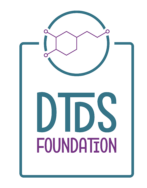Families
We have created this DTDS Patient Advocacy Organization to improve care, bring new therapies and treatments to DTDS patients, and ultimately work towards developing a cure. We are working with doctors, researchers, and other rare disease organizations to get a better understanding of how we can advance the treatment and science for DTDS.
One of the most obvious areas of need, and one that we as an organization can control, is the need to be more organized and have a better understanding of our patient population. We have learned that providing researchers with our data is one of the most effective and efficient ways for us to accelerate our path to new treatments. Many people have asked what they can do to help us move faster towards new therapies and a cure. This is your chance to help advance research for yourself or your child!
Please participate in the programs below. There is no cost to participate.
- Family Contact Registry
- Make sure you are counted in the DTDS Coummunity. Our family contact registry is a short form to track the growing number of patients with DTDS around the world. The registry will be used to inform individuals with DTDS and their guardians about:
- discoveries about Dopamine Transporter Deficiency Syndrome that may impact care decisions
- opportunities to participate in research
- opportunities to contribute data
- The DTDS Family Contact Registry is not the same as our newsletter mailing list. You must opt-in to our Contact Registry by completing the form above.
- We will not use this list for marketing or fundraising.
- If our policy about acceptable use of our contact registry ever changes, you will be notified. You may opt-out of the contact registry at any time by emailing us at admin@dtdsfoundation.org
- Make sure you are counted in the DTDS Coummunity. Our family contact registry is a short form to track the growing number of patients with DTDS around the world. The registry will be used to inform individuals with DTDS and their guardians about:
- Data Collection Program powered by RARE-X
- This Data Collection Program follows a group of patients over time to collect information about their symptoms and better understand the disease. The DTDS + RARE-X Data Collection Program gathers comprehensive information from participating patients on an annual basis to track changes or progression of the disease in a longitudinal manner. This robust study allows the scientific and medical community to compare cases, discover new phenotypes (symptoms), and re-contact families as new discoveries are made. By collecting comprehensive medical data from each individual diagnosed with DTDS, we can develop better care guidelines and evaluate the effectiveness of potential DTDS therapeutics in clinical trials.
- We are excited to partner with the medical data science company RARE-X to create a research database that will host our Data Collection Program. To move this research forward, we are looking for families and patients willing to contribute their medical records to make this effort as strong as possible. All data shared with researchers is de-identified, or anonymized, meaning no identifying information like name or phone number is shared.
- Your family can advance DTDS research from the comfort of your own home by participating in the DTDS + RARE-X DCP. This study is crucial to advance our understanding of Dopamine Transporter Deficiency Syndrome and swiftly develop strategies for treatment.
- Natural History Study by iNTD
- This natural history study is hosted by the International Working Group on Neurotransmitter Related Disorders
- Please pass this information on to your doctor or neurologist to participate in the study.
- Biospecimen collection with Coriell and NIGMS Repository
- The NIGMS Repository is a research biobank. They collect blood and/or tissue samples from individuals with genetic diseases and make them into cell lines and DNA for scientists to use in biomedical research. They do not conduct research at Coriell, but they do provide the materials for scientists around the world to perform research on genetic disorders. They do not provide donors with any results regarding their genetic disease nor information on their sample itself.
- Scientists use these samples to: advance biomedical research, develop new treatments for diseases, understand gene functions, search for cures
- Individuals with DTDS and their immediate family members are invited to send in samples of blood and/or skin biopsy to the biobank.
- The submission process is as follows: it is a one-time sample donation and submission paperwork to be completed for each sample donor. They will send you a sample collection kit, free of charge, which includes instructions and all necessary materials for the sample collection and return of the kit back to them (including a prepaid return shipping label). You must submit supporting clinical data (e.g. genetic test results, medical records, physician summary records) which describe the diagnosis. The more additional information you provide, the more valuable the sample will be for researchers.
More ways to get involved in the DTDS community
We have created a private Facebook group just for parents of children with DTDS. Click the link below to join us and share symptoms, solutions, and inchstones with other families around the world living with DTDS.
Share your DTDS story with us and be featured on the website.
